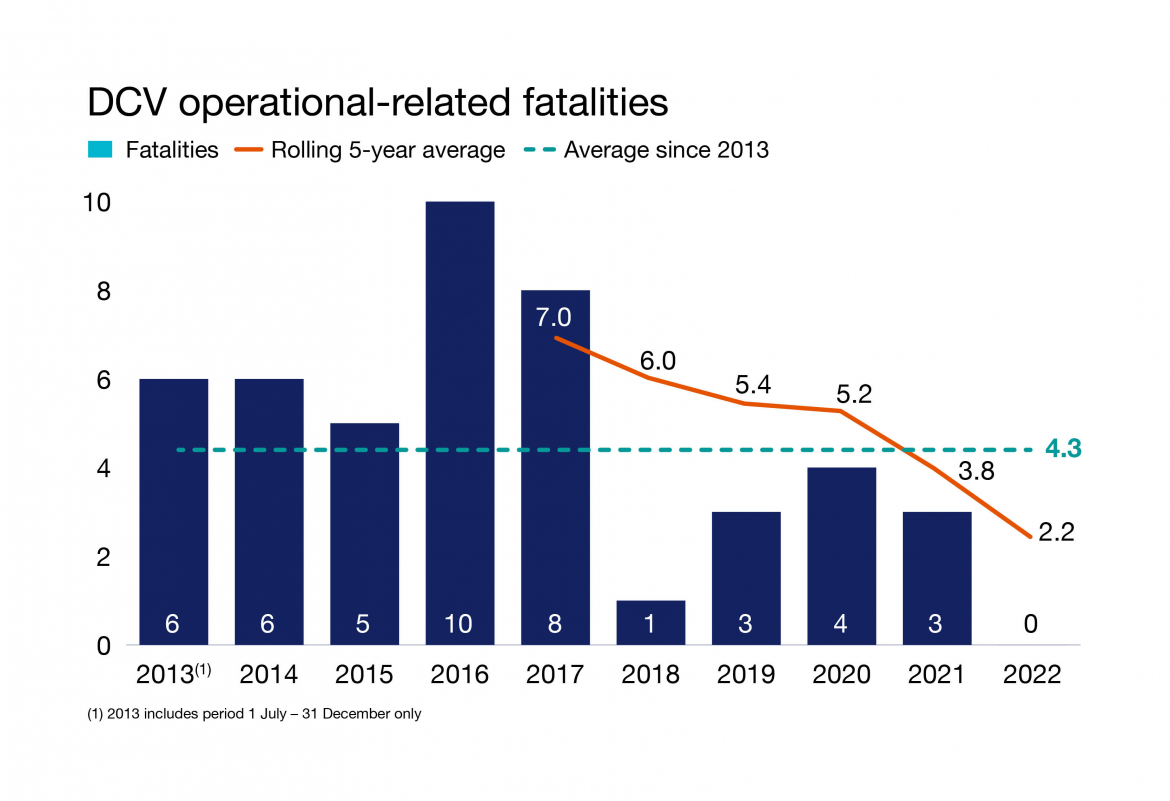We are Australia’s national maritime safety regulator for domestic commercial vessels that operate within Australian waters.
The National System for Domestic Commercial Vessel (DCV) Safety (the National System) provides a consistent approach to the regulation of safety for owners, operators, masters, crew and builders of DCVs working in Australia.
History of the National System
On 1 July 2013, the National System commenced. A 5-year transitional period began, whereby the marine safety agencies of each state and territory acted as delegates for the Australian Maritime Safety Authority (AMSA) under the Marine Safety (Domestic Commercial Vessel) National Law Act 2012 (NL Act). The National System replaced 8 sets of rules with one regulatory scheme and is based on nationally agreed standards for DCVs.
On 1 July 2018, AMSA took on the service delivery of the National System.
Engagement with industry
We developed a national safety committee and regional safety committees to enable a two-way communication channel between different industry groups on our regulations and safety standards related to the National System.
Committees and advisory groups play a critical part in how we operate as a modern regulator, by collaborating with industry and consulting widely on proposed changes or new requirements.
When we became the sole regulator of the National System, accredited surveyor workshops were held nationally to complement the new survey schemes under Marine Order 503, survey reporting requirements of the surveyor manual and newly introduced operating system, MARS.
We also undertook safety management system (SMS) workshops to support industry in operational safety compliance. These workshops challenged the way SMS had been historically considered, by presenting a system for managing business safely, not just complying with maritime safety regulations. We have delivered over 300 formal SMS workshops.
Implementing change
In 2018, we faced new challenges when we inherited a geographically diverse fleet of DCVs. To ensure the compliance, certification and inspections of this considerable fleet, we developed frameworks, technical systems, and communication processes to further improve our interactions with industry.
Our Seafarer Certification team commenced the assessments required for Certificates of Competency to be issued to domestic operators. Considerable effort was taken to manage the data transfer from the state agencies.
With a consistent ‘one voice’ approach, we implemented various tools, systems and procedures to increase operational efficiency and consistency, and aid the effective allocation of resources.
This has since incorporated many regulatory changes and initiatives, including the introduction and amendments of several marine orders, adoption of the Marine Surveyors Accreditation Guidance Manual 2014 and development of our annual National Compliance Plans.
Ongoing focus on safety improvements
Through our service delivery of the National System, we continue to consult with stakeholders and industry groups to ensure we support emerging technology and have appropriate regulations in place.
We have altered compliance expectations and safety standards and taken significant steps to introduce and amend legislation to reduce the number of fatalities associated with DCV operations.
Key initiatives, achievements and statistics
AMSA’s first 5-years of service delivery (2018–2023)
- 2018 | Transition and early changes
- AMSA became the sole regulator of the National System for DCVs.
- Marine order 503 (Certificates of survey) revised to implement:
- transitional vessel standards delivering safety upgrades for fire safety, electrical safety and stability
- flexible survey schedules based on vessel service category and risk modifiers, requiring the reissue of over 8000 certificates of survey
- national standard for safety equipment NSCV C7A, ending state grandfathered arrangements
- national standard for survey of DCVs, (SAGM -the surveyor manual), ending state grandfathered survey arrangements.

- MARS certification database went live as the national repository of certification and approvals for commercial vessels and operators. Issuing of domestic seafarer qualifications commenced.
- Mandatory vessel lightship checks and declarations introduced in response to coronial findings regarding unapproved vessel modifications.
- Compliance and enforcement policy introduced.

- 2019 | Collaboration
- National Maritime WHS Regulators Forum with state WorkSafe agencies initiated.
- National and regional safety committees established.
- Accredited surveyor workshops held nationally to complement the new survey schemes under Marine Order 503, survey reporting requirements of the surveyor manual and MARS.
- More than 70 safety management system workshops undertook nationally, with a total of approximately 600 stakeholder participants attending.
- 2020 | Passenger safety
- COVID-19 mitigation strategies implemented to reduce impact to DCVs.
- Marine Order 504 (Certificates of operation and operation requirements) strengthened in line with community expectations, leading to education campaigns and an ongoing focus on passenger safety.
- Safety campaign Operation NEMO, which focussed on dory operations and reducing inadvertent EPIRB activations, concluded, and resulted in increased safety compliance, legitimate EPIRB activations and reduced serious incidents.

- 2021 | Ongoing regulatory improvements
- National framework for safety equipment on fishing vessels in warm water and close to shore amended following extensive consultation.
- National Compliance Plan based on inspection and incident data introduced.
- Carriage of Float Free EPIRBS mandated on certain vessels in response to multiple vessels sinking with no EPIRB activation.
- 2022 | Certificates of competency
- Marine Order 505 (Certificates of competency), introducing 5 new certificates and reducing regulatory burden, commenced after extensive consultation.

- 2023 | Safety outcomes and new challenges
- A reduction of fatalities on DCVs, with numbers trending downwards since AMSA’s service delivery of the National System. In 2022, no fatalities associated with DCV operations were recorded.
- Approval of over 50 autonomous vessel operations by January 2023, which are managed through specific exemptions.
- Statistics

Fleet
More than 6,000 DCVs have entered service with AMSA
Largest: Minres Airlie (123.8 metres long)
Smallest: an AQUA Stingray Neo + (1.44 metres long)
Certification
17,368 Certificate of operation assessments
26,203 Certificate of survey assessments
10,864 Exemption 02 non-survey assessments
6,802 Temporary operations permits
45,192 New certificates of competency issued to 27,787 individual seafarers
Customer focus
369, 802 National System Support Centre interactions
90.1% Customer satisfaction rating
